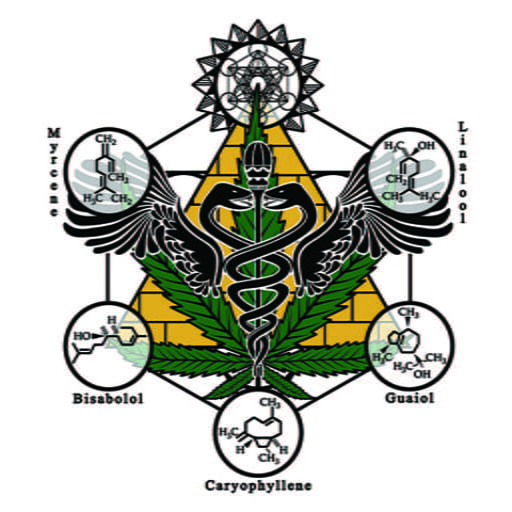Highlight
Frequently Asked Questions
Hemp is defined as a cannabis plant (Cannabis Sativa L) containing less than 0.3% Total THC (Tetrahydrocannabinol), which is the psychoactive compound that induces the “high” most commonly associated with marijuana. Though hemp is often cultivated for its rich CBD (Cannabidiol) content, it can also be refined into fiber, textiles, paper, building materials, and bio-fuel.
Feminized seeds are intentionally bred to remove the male chromosome, ensuring that the plant will be female. Only a female cannabis plant produces the cannabinoid and terpene-rich flower or bud most cultivators seek. Whether your crop is intended for CBD oil extraction or smokable flower, a female plant is the key to success.
Cannabis plants show their sex before they are mature enough to start the pollination cycle. Between the plant’s nodes (where the leaves and branches meet the stalk), pollen sacs (male) or a stigma (female) will develop. Male pollen sacs are small, ball-like growths whereas female stigmas are thread-like pistils or hairs.
Hemp is a highly versatile plant and is grown in many regions throughout the world. Including but not limited to Australia, Austria, Canada, Chile, China, Denmark, Egypt, Finland, France, Germany, Great Britain, Hungary, India, Italy, Japan, Korea, Netherlands, New Zealand, Poland, Portugal, Romania, Russia, Slovenia, Spain, Sweden, Switzerland, Thailand, Turkey, Ukraine and recently again in the United States.
Hemp is grown on nearly every continent including Europe, North America, South America, Asia, and Australia. Davis Farms’ President, Jeremy Klettke, has dedicated over 20 years into the research and development of genetics that are crafted for specific bio-regions and micro-climates. Providing farmers with stable genetics tailored to their specific climate is one of Davis Farms’ proudest accomplishments. Our genetics are cold-weather hardy, mold and mildew resistant, and naturally pest resistant due to their unique terpene profiles. Because of these characteristics, Davis Farms hemp plants do very well in almost all climates.
Certified seed has been bred and verified to have certain traits. Plants with all the same traits are called “varieties”. A variety is bred and maintained so that its characteristics are uniform, distinct and stable across generations. Certified seed breeders traditionally breed for traits such as plant height, uniformity, drought and pest resistance. There are different organizations that certify crop seeds. Two examples of international seed certification organizations are AOSCA (Association of Official Seed Certifying Agencies) and OECD (Organization for Economic Co-operation and Development). Davis Farms’ seeds have been certified by Oregon State University’s seed certification program, which is recognized by the AOSCA. Because hemp is relatively new to the market, it may be required to source your seed from a certified supplier. Be sure to check with your local municipality for regulations specific to your state or country.
Our genetics have been bred specifically to stand up to various forms of inclement weather. We’re proud to provide frost tolerant, as well as mold resistant cultivars for wetter environments. If weather or climate is a concern, please reach out to our team so that we may discuss your conditions and help you choose the right cultivar and harvesting period to thrive in your environment.
The foundation of any crop is sowed with the seed chosen. Reliable data is crucial for a successful harvest. Third-party verification means the genetics have been scientifically verified by an outside institution with zero ties to the supplying farm. Any hemp seed provider should be forthcoming with their genetics germination rates, feminization rates, and CBD:THC content as verified by a licensed, third-party laboratory.
With hemp we encourage using a hothouse or similar infrastructure to germinate and harden seedlings prior to field planting. The average time from germinating seed to field transplanting is 14-21 days. Planting density can be variable depending upon a number of conditions. Including but not limited to bioregion, microclimate, latitude, and planting date. At Davis Farms we suggest a median planting density of 4 ft. by 5ft or approximately 2250 plants per acre. To achieve this planting density we suggest the farmer start with 2500 seeds per desired acre planted. This will allow for a 10% cull rate through the germination & transplanting process. Field preparation varies depending upon soil type and existing irrigation but transplanting is generally done with a waterwheel transplanter or similar equipment.
This varies by location and cultivar, hemp is an annual crop that will generally be farmed between April and November.
Yes. With the release of the USDA’s Interim US Domestic Hemp Production Program, those handling hemp in any fashion (seed breeding, plant cultivation, CBD extraction, or whole biomass processing) must have a hemp license. Every state has its own hemp regulations. If your state already has a hemp program in place, you must follow your local hemp regulations. If your state does not yet have a hemp program, you must follow the USDA’s licensing program until your state’s program is developed.
Yes. Davis Farms holds the appropriate licensing to both handle and sell hemp seed. Due to our unique and federally compliant genetics, Davis Farms is also listed on a number of state’s Department of Agriculture’s Hemp Seed Providers lists.
It is not permitted to propagate, clone, or create a mother stock from the seeds provided. Davis Farms’ genetics are proprietary and appropriately protected in our Seed Purchase Agreement. Because our genetics are fully feminized the plant should not produce seed and pollinating with outside genetics is also prohibited. Please respect that Davis Farms has worked and continues to work tirelessly to provide genetics that are both high in CBD content and federally compliant to best ensure the farmer success.
